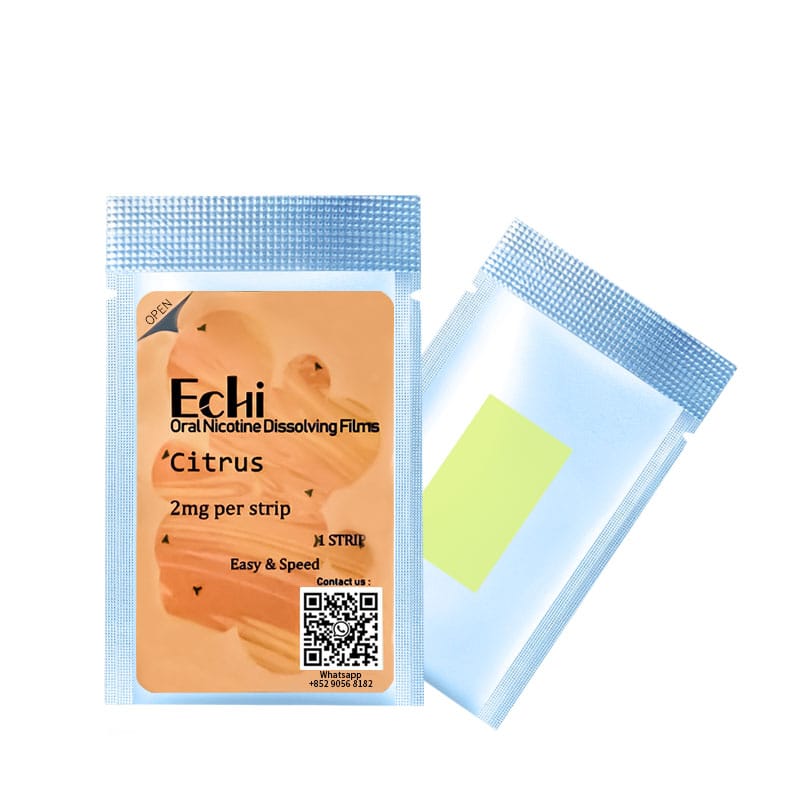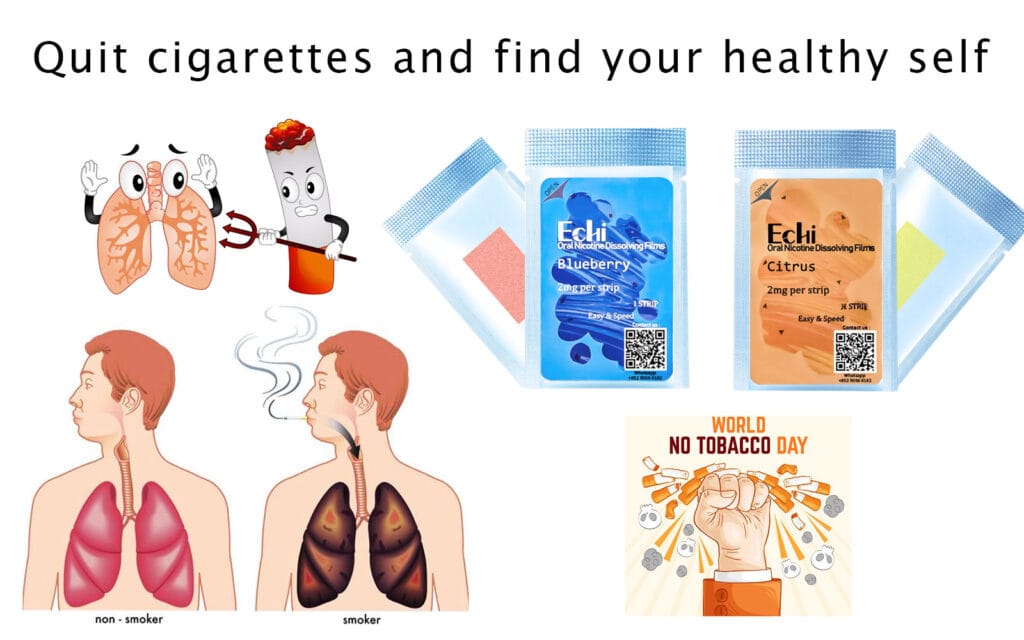Table of contents
Nicotine stains on teeth are a common concern for those who use nicotine products like cigarettes, cigars, or nicotine pouches. Over time, these stains can develop due to the chemicals in nicotine, which bind to the enamel of your teeth. The good news is that these stains are not permanent and can be removed with the right techniques. In this blog, we will explore effective methods to remove nicotine stains from teeth, provide tips for prevention, and highlight how nicotine alternatives like nicotine pouches may help reduce staining.
Why Do Nicotine Stains Form on Teeth?
Nicotine stains form when the nicotine and tar in tobacco products are inhaled or absorbed into the mouth. These substances contain pigments that adhere to the enamel, causing discoloration. Unlike coffee or wine stains, nicotine stains are more stubborn and can penetrate the enamel more deeply, making them harder to remove.
Whether you use traditional cigarettes, nicotine pouches, or nicotine strips, understanding the causes of these stains can help in managing and preventing them.
Effective Ways to Remove Nicotine Stains from Teeth
1. Brush Regularly with Whitening Toothpaste
Whitening toothpaste is designed to help remove surface stains and prevent further discoloration. It contains mild abrasives and chemicals that scrub away the stains on your teeth. Brushing your teeth at least twice a day with whitening toothpaste is the first line of defense against nicotine stains. Look for toothpaste with fluoride and baking soda, as these ingredients are particularly effective in fighting stains.
Pro Tip: For extra stain-fighting power, try using an electric toothbrush. The faster bristle movements can help remove stains more effectively than a manual toothbrush.
2. Professional Dental Cleanings
While brushing helps remove surface stains, nicotine stains that have penetrated the enamel require professional intervention. Dentists can perform deep cleaning procedures, such as scaling and polishing, which can significantly reduce or even eliminate nicotine stains. This method can reach areas that are difficult to clean with a toothbrush.
Frequency: Regular dental cleanings (every 6 months) are important not only for stain removal but also for maintaining overall oral health.
3. Whitening Treatments
For more stubborn stains, over-the-counter or professional teeth whitening treatments may be necessary. These treatments use stronger bleaching agents to break down deep stains and restore the natural whiteness of your teeth. Professional whitening performed by a dentist tends to be more effective and longer-lasting, but at-home whitening strips or gels can also help.
Pro Tip: Always follow the instructions provided with whitening products to avoid overuse, which can damage your enamel.
4. Oil Pulling with Coconut Oil
Oil pulling is an ancient Ayurvedic practice that involves swishing oil in your mouth to improve oral hygiene and remove stains. Coconut oil, in particular, is effective at breaking down plaque and bacteria in the mouth. While there is limited scientific evidence to support its effectiveness on nicotine stains specifically, many users report that oil pulling can help maintain oral health and reduce discoloration.
How to Use: Swish a tablespoon of coconut oil in your mouth for 10-15 minutes, then spit it out and rinse your mouth with water. This can be done once or twice a day.
5. Baking Soda and Hydrogen Peroxide Paste
A homemade paste made from baking soda and hydrogen peroxide can also help lift nicotine stains. Baking soda is mildly abrasive and helps scrub away surface stains, while hydrogen peroxide acts as a bleaching agent to whiten teeth.
How to Use: Mix a small amount of baking soda with hydrogen peroxide to create a paste. Apply it to your toothbrush and gently scrub your teeth for about two minutes. Be cautious not to overuse this method, as it can erode enamel if done too frequently.
Tips for Preventing Nicotine Stains
While it’s possible to remove nicotine stains from teeth, prevention is always the best approach. Here are some tips to keep your smile bright:
1. Switch to Nicotine Alternatives
If you’re looking for a cleaner, less staining alternative to traditional smoking, consider using nicotine pouches or nicotine strips. These products deliver nicotine without the harmful tar and smoke associated with cigarettes. Nicotine pouches, in particular, are discreet and easy to use, and they don’t contribute to staining your teeth the way smoking does.
Visit Echi to learn more about our nicotine pouches, which offer a smoke-free experience and help minimize oral health risks, including staining.
2. Hydrate Frequently
Drinking plenty of water throughout the day can help rinse away substances that cause stains and keep your mouth hydrated. Additionally, drinking water after using nicotine products can help wash away lingering chemicals that may stain your teeth.
3. Use Mouthwash with Fluoride
Mouthwash can help kill bacteria, reduce plaque buildup, and protect your teeth from staining. Look for a fluoride-based mouthwash to help strengthen your enamel and prevent nicotine stains from forming.
4. Quit Smoking or Using Nicotine Products
The most effective way to prevent nicotine stains is to quit smoking or using nicotine products altogether. Quitting not only helps protect your oral health but also improves your overall well-being. If you need support in quitting, consult with your doctor or a professional smoking cessation program.
Conclusion
Nicotine stains on teeth are a common issue for users of traditional cigarettes or other nicotine products. However, with regular brushing, professional cleanings, whitening treatments, and preventive measures, it is possible to keep your smile looking bright and healthy. Additionally, switching to nicotine pouches or nicotine strips, which don’t contribute to staining, can be a great alternative for those looking to reduce the impact on their oral health.
If you’re looking to try a smoke-free nicotine option, explore our selection of nicotine pouches at Echi—a convenient, discreet, and less harmful choice for those looking to reduce nicotine-related stains.
For personalized assistance or product recommendations, feel free to reach out via WhatsApp at +852-90568182.
FAQs
1. Can nicotine stains be completely removed?
While professional treatments can significantly reduce nicotine stains, it may not always be possible to remove them completely, especially if the stains are deep. However, regular dental care and whitening treatments can greatly improve the appearance of your teeth.
2. Are nicotine pouches better for teeth than smoking?
Yes, nicotine pouches are a better alternative to smoking when it comes to oral health. Unlike cigarettes, which deposit tar and other chemicals onto your teeth, nicotine pouches don’t produce smoke or cause staining.
3. How often should I use whitening toothpaste?
Whitening toothpaste can be used daily as part of your regular oral care routine. However, if you’re using other whitening treatments, it’s best to alternate between them to avoid overuse and potential enamel damage.
4. How long does it take to remove nicotine stains from teeth?
The time it takes to remove nicotine stains depends on the severity of the staining and the method used. Professional dental cleanings typically offer faster results, while home remedies like whitening toothpaste may take several weeks to show noticeable improvements.






